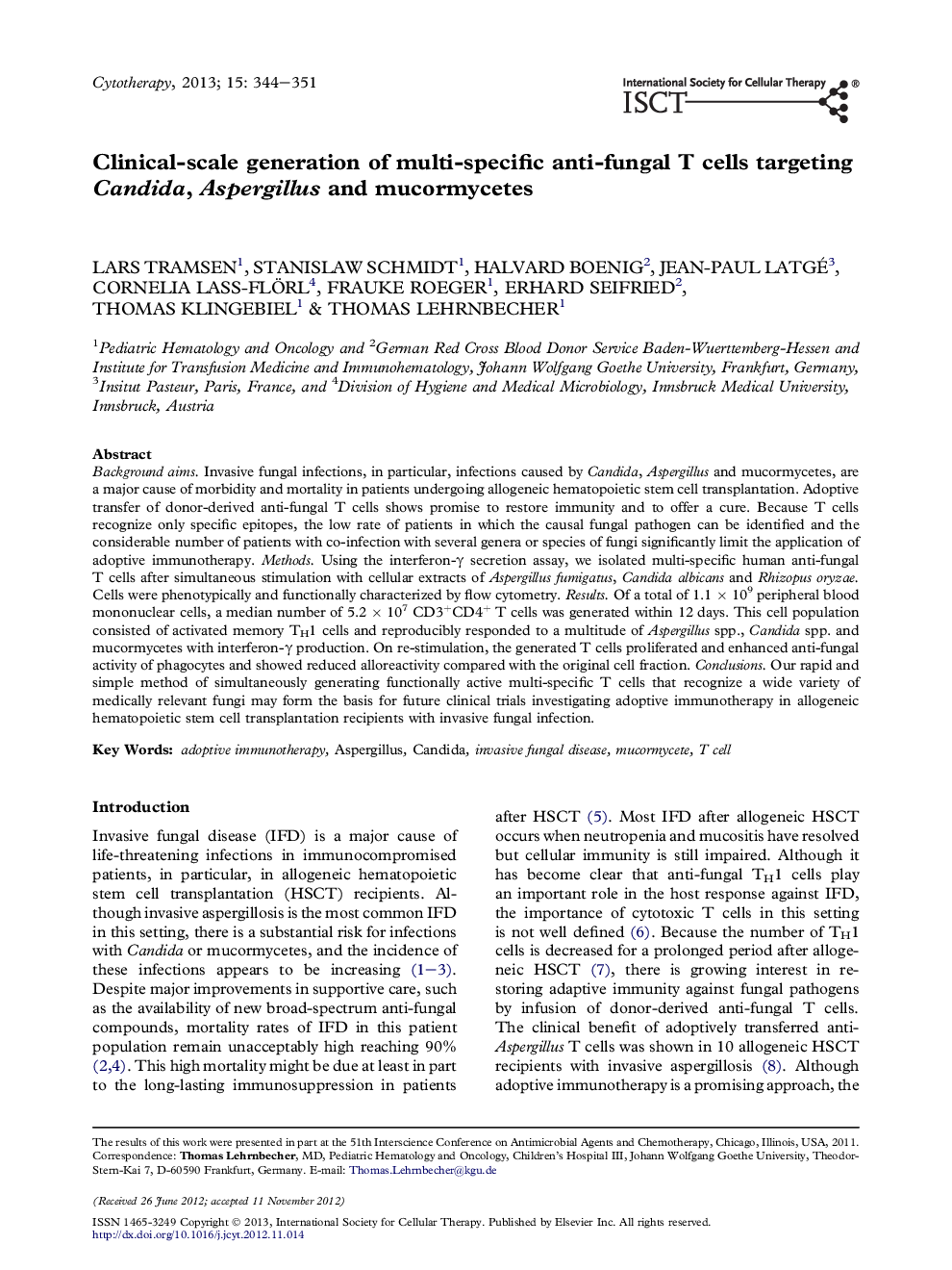| Article ID | Journal | Published Year | Pages | File Type |
|---|---|---|---|---|
| 2171860 | Cytotherapy | 2013 | 8 Pages |
Background aimsInvasive fungal infections, in particular, infections caused by Candida, Aspergillus and mucormycetes, are a major cause of morbidity and mortality in patients undergoing allogeneic hematopoietic stem cell transplantation. Adoptive transfer of donor-derived anti-fungal T cells shows promise to restore immunity and to offer a cure. Because T cells recognize only specific epitopes, the low rate of patients in which the causal fungal pathogen can be identified and the considerable number of patients with co-infection with several genera or species of fungi significantly limit the application of adoptive immunotherapy.MethodsUsing the interferon-γ secretion assay, we isolated multi-specific human anti-fungal T cells after simultaneous stimulation with cellular extracts of Aspergillus fumigatus, Candida albicans and Rhizopus oryzae. Cells were phenotypically and functionally characterized by flow cytometry.ResultsOf a total of 1.1 × 109 peripheral blood mononuclear cells, a median number of 5.2 × 107 CD3+CD4+ T cells was generated within 12 days. This cell population consisted of activated memory TH1 cells and reproducibly responded to a multitude of Aspergillus spp., Candida spp. and mucormycetes with interferon-γ production. On re-stimulation, the generated T cells proliferated and enhanced anti-fungal activity of phagocytes and showed reduced alloreactivity compared with the original cell fraction.ConclusionsOur rapid and simple method of simultaneously generating functionally active multi-specific T cells that recognize a wide variety of medically relevant fungi may form the basis for future clinical trials investigating adoptive immunotherapy in allogeneic hematopoietic stem cell transplantation recipients with invasive fungal infection.
